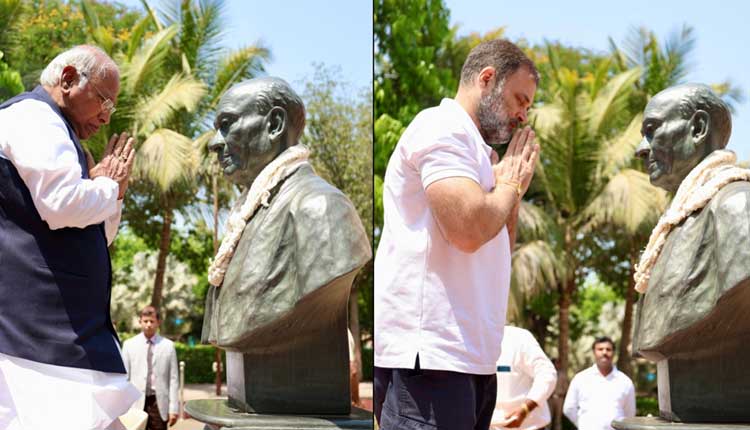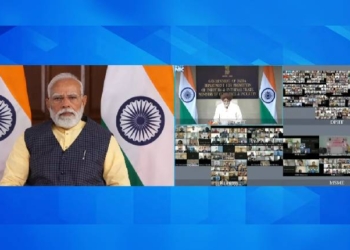Ahmedabad: On the occasion of the 150th birth anniversary of Sardar Vallabhbhai Patel, the Indian National Congress (INC) gathered on the historic banks of the Sabarmati River in Ahmedabad to adopt a resolution calling for a national revival rooted in the core values of the freedom movement.
The resolution, adopted on April 7, is as much a tribute to Patel as it is a call to reclaim his legacy in the face of what the party terms as a “distorted narrative” around India’s nation-building story.
The resolution titled ‘Flag Bearer of Freedom Movement – Our Sardar – Sh. Vallabhbhai Patel’ was a reflection of both introspection and assertion.
While the Congress reiterated its foundational values of secularism, pluralism, and economic justice, it also sought to remind the nation of Patel’s true contributions – not just as the ‘Iron Man’ who united India, but also as a Gandhian who believed in inclusive politics.
The party emphasised that Patel’s leadership in the Kheda Satyagraha in 1918, where he opposed British tax imposition on farmers, was inspired by Mahatama Gandhi’s principles.
It traced his journey through the Bardoli Satyagraha of 1928 to his decisive role in the integration of princely states after Independence, positioning him not as an icon of muscular nationalism but as a bridge between Mahatama Gandhi’s vision and Nehru’s execution.
“There is a deliberate attempt to decontextualise Sardar Patel from his ideological roots. He was a Gandhian at heart, not an authoritarian figure as projected by today’s propaganda machinery,” a senior Congress leader stated during the Ahmedabad meet.
The resolution underscored the urgent need to reclaim the idea of India that was founded on dialogue, diversity, and democratic values. It accused the Union government of undermining constitutional institutions, polarising the citizenry, and misappropriating freedom fighters for political gain.
In contrast, the Congress vowed to intensify its ideological struggle with a renewed commitment to national unity and economic equity.
The location of the resolution—the banks of Sabarmati—was symbolic. It was from here that Mahatama Gandhi launched the ‘Salt March’, and it is here that Congress is attempting to launch what it terms a “struggle for India’s soul.”
Referencing Mahatma Gandhi, Pandit Nehru, and Sardar Patel together, the party sought to reassert the collective vision that led India to freedom and laid the foundation for its post-Independence trajectory.
Notably, the resolution also focused on current socio-political challenges, warning against the erosion of federalism, the rise of communal politics, and the suppression of dissent.
The Congress emphasised that true patriotism lies in upholding constitutional morality, protecting the rights of every citizen, and embracing the plural fabric of the nation.
The Congress’s resolution from Ahmedabad may well be seen as a manifesto for ideological reorientation – an attempt to bring the conversation back to the roots of the Republic.
Whether it succeeds in recentering the political discourse remains to be seen, but for now, the party has made its message clear: reclaiming Sardar Patel is about reclaiming India itself.
(IANS)
















